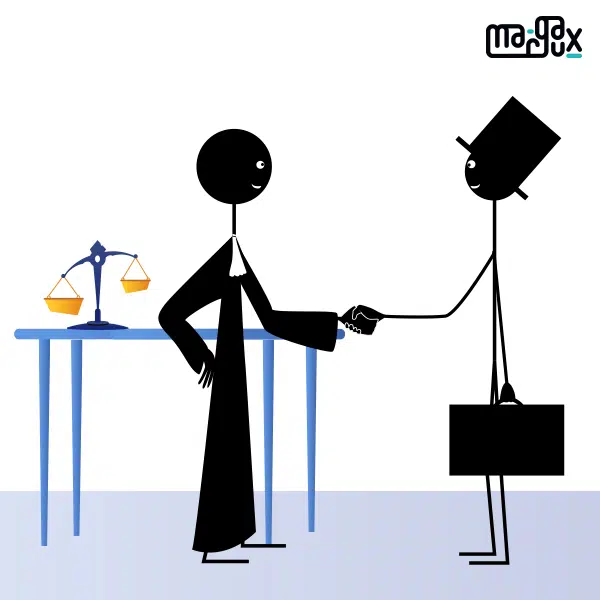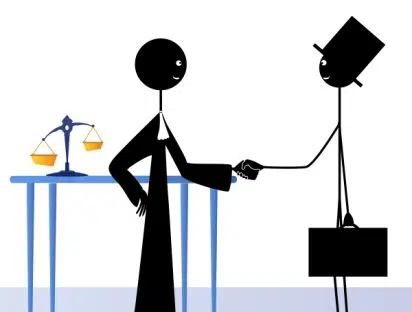On 30 November 2022, the President of the Paris Judicial Court validated a “judicial public interest agreement” (in French: “Convention judiciaire d’intérêt public,” subsequently called CJIP below) between Airbus and the French Financial Prosecution Service (Parquet national financier or PNF) “concerning judicial investigations related in particular to Libya and Kazakhstan” (1). The CJIP is basically the equivalent of the Deferred Prosecution Agreement (DPA) in the United States and Great Britain. In the case at hand, it involves the payment of a fine of 15.9 million euros to the French Treasury. While the CJIP is generally based on an “agreement,” this agreement does not appear to place the parties to the transaction “on an equal footing” (2). The reason for this lies in the very nature of the CJIP, whereby the legal person agrees to a proposal by the public prosecutor. In this first article, we discuss this imbalance and, of course, the nature of this agreement.

The way in which the media have reported on the CJIP signed between Airbus and the PNF leaves no doubt that the CJIP is a genuine agreement. For example, it has been reported that Airbus “has reached an agreement with the Parquet national financier and agrees to pay a fine,” “prefers a fine to prosecution,” or “has chosen to pay a fine” (3).
This lack of ambiguity can be found in the French law of 9 December 2016 which established the CJIP (4). It states that “when the accused legal entity gives its agreement to the proposed agreement, the public prosecutor shall refer the matter to the president of the high court by petition for validation” – in the case of Airbus, this validation took place on 30 November 2022 –, or that “the legal representatives of the accused legal entity [...] shall be informed, as soon as the public prosecutor makes the proposal, that they may be assisted by a lawyer before giving their agreement to the proposed agreement.” And, as the law professor Didier Rebut points out, the fact that this mechanism has been designated by the term “convention” makes it similar to a contract, i.e. an “agreement of will” between parties (5).
The idea of the imbalance inherent in this agreement originates at the beginning of Article 22 of the law: “As long as the public prosecution has not been initiated, the public prosecutor may propose to a legal person accused of one or more offences [...] to enter into a CJIP imposing one or more [...] obligations.” The fact that the initiative lies with the public prosecutor and that the judge has substantial control over the validation of the agreement reinforces the idea that the CJIP “does not place the parties to the transaction on an equal footing” (6).
The jurist Martina Galli proposes a distinction that makes it possible to specify the nature of the agreement specific to the CJIP (7). In the context of the movement towards contractualisation and consensualism in criminal justice, she makes a simplified distinction between the “negotiated justice model” and the “consensual model.”
In the former, a real negotiation takes place (what Martina Galli calls the “dynamic element of discussion”), which implies that the parties make mutual concessions in order to reach an agreement.
The consensual model, on the other hand, is asymmetrical in that it is based on an acceptance or rejection of a proposed agreement initiated only by the judicial authority. Here, “the defendant is [...] called upon to decide whether or not to accept the conditions imposed by the prosecutor” (8).
The CJIP belongs to the second model. It has the three features that characterise it: “the terms of the agreement are laid down by the public prosecutor; the criminal system exercises control over the content of the agreement; the agreement is a matter of formal justice, with the legislator laying down the terms and conditions for its implementation” (9).
In short, the CJIP is a form of coerced but “without regret” agreement. As Martina Galli notes, “the law expressly targets obligations ‘imposed’ on the offender, not merely proposed,” and the company’s power is “to accept or reject content that is beyond its control” (10).
The fact remains that, in the words of Etienne Vergès, a professor of private law, negotiation is not absent from the CJIP: “The CJIP takes [...] part in a process of negotiation in which the parties involved will assess, prior to the criminal trial, the chances of success or failure of their action, and the risks that a possible initiation of public action would entail,” so much so that the parties (judicial authority and legal person) “may thus consider that the negotiation procedure presents more economic interests than the initiation of a trial” (11).
The CJIP agreement may be constrained in the sense just mentioned, but agreements rarely correspond to the ideal of a “communion of thoughts, feelings [and] wills, [and] the resulting understanding” (12). They are often constrained either (i) by the logic of the negotiation when it takes place, or (ii) by external circumstances that force one or more parties to seek an agreement, or (iii) because agreeing to a proposal allows one of the parties to avoid a situation unfavourable to its interests.
The CJIP comes under the third case. For a legal person accused under the offences provided for in Article 22 of the Law of 9 December 2016 (corruption and influence peddling), it is better to pay a fine to the Treasury and implement an effective compliance programme if this allows it to extinguish the public action against it, to acknowledge the facts without admitting its guilt, not to be excluded from national public contracts and to be able to bid on international public contracts, to benefit from the acceleration of the criminal procedure and the reduction of the risk (including reputational risk) linked to its outcome, and finally, not to see its top management destabilised as it would be in the context of a criminal procedure (the CJIP is simply the subject of a press release) (13). In short, and in the words of sociologist Pierre Lascoumes, while the CJIP “is based on pragmatic principles” and “the State sees this procedure as a guarantee of efficiency, companies have from the outset perceived the benefits they could derive from it” (14).
These advantages have given rise to criticism, including that of Pierre Lascoumes, who observes that “the CJIP is indeed the negotiation of a contract that takes place without a third party and without the arguments of either side being known” (15). Laura Rousseau, head of the French law association Sherpa’s Illicit Financial Flows programme, and the lawyer Nada Nabih state that “the creation of the CJIP has created a two-tier justice system in which companies their innocence for the most serious offences, with no possible recourse for the victims, whose place is limited” (16). Moreover, the CJIP encourages the legal persons concerned to estimate the criminal risk by means of a cost-benefit calculation, a calculation which could even, because of the CJIP, be made at the outset of a business: “Since the amounts are not dissuasive, and since the risk in economic matters is approached in an accounting manner, it is quite reasonable to hypothesise that companies may be tempted to make a trade-off between the risk of sanctions and the benefits derived from a practice which exposes them to those risks.”
The same type of comment was made by Lauren Giudice on the negotiated procedures permitted by the Foreign Corrupt Practices Act (FCPA) in the US: “[…] Pre-trial diversion agreements [which includes DPAs] may provide incentives for corporations to take greater risks and engage in more questionable practices if they believe that they can cut a deal with the government and defer prosecutions indefinitely. The incredibly large fines that are often highly publicized have even been described as ‘‘peanuts’ compared with the damage posed by a criminal conviction.’” (17).
Finally, it should be noted that while for legal persons the CJIP appears to be the least worst option, which is enough to make it the rational option, it is also driven by the general context. The argument is minor, but the enthusiastic reception the CJIP has received from both French companies and the judicial authorities – the Gauvain-Marleix parliamentary report noted that “four and a half years after its creation, the CJIP is an undeniable success” (18) – has created a favourable background for the conclusion of these agreements.
These considerations are probably sufficient to describe the meaning of the agreement that is reached in the framework of a CJIP. Beyond its practical specificities, it represents a confrontation of interests that allows each party, including the “public interest,” to obtain a satisfactory result, compared to a classic criminal procedure.
However, the imbalance that we presented in section 1 suggests that it should be considered a little further, not in order to arrive at a legal characterisation of this agreement, which would be irrelevant, but in order to nourish the meaning that we give it. We will do so, from an essentially philosophical perspective, by invoking the concept of joint commitment, as explained by the philosopher Margaret Gilbert, and the distinction between consent and assent.
References
(1) “Airbus paiera une amende de 15,9 millions d’euros pour éviter des poursuites,” Les Echos investir, 30 November 2022. The quote is from an Airbus spokesperson (“Soupçons de corruption en Libye et au Kazakhstan: Airbus prêt à payer une amende pour éviter des poursuites,” AFP Infos Françaises, 24 November 2022).
(2) L. Fabre (Transparency International France), “Préservons l’équilibre de la convention judiciaire d’intérêt public,” Le Monde du Droit, 5 November 2021.
(3) “Corruption : Airbus accepte de payer plus de 15 millions d’euros pour solder le passé,” Les Echos, 30 November 2022, “Airbus préfère une amende plutôt que des poursuites judiciaires pour des soupçons de corruption en Libye et au Kazakhstan,” Le Monde, 25 November 2022, and “Soupçons de corruption en Libye et au Kazakhstan : Airbus accepte de payer une amende,” Ouest France, 25 November 2022. It should be noted that an initial CJIP had been concluded between the Financial Public Prosecutor and Airbus on 29 January 2020 (the CJIP is available on the website of the Agence Française Anticorruption), the public interest fine amounting to just over two billion euros.
(4) Loi n° 2016-1691 du 9 décembre 2016 relative à la transparence, à la lutte contre la corruption et à la modernisation de la vie économique, Article 22. Italics are mine.
(5) “It is not insignificant to note that the law expressly expresses itself in terms of the conclusion of an agreement, which tends to testify to its nature as a contract” (D. Rebut, “Les entreprises au service de la lutte contre la corruption : commentaires des mesures anticorruption de la loi Sapin 2,” Bulletin Joly Bourse, 1, pp. 48-55). The last quote comes from the CNRTL.
See also M.-S. Baud, “La manifestation de la vérité dans le procès pénal : une étude comparée entre la France et les États-Unis,” Les Cahiers de la Justice, 4(4), 2017, pp. 705-720.
(6) L. Fabre, op. cit.
(7) M. Galli, “Une justice pénale propre aux personnes morales. Réflexions sur la convention judiciaire d’intérêt public,” Revue de science criminelle et de droit pénal comparé, 2(2), 2018, pp. 359-385.
(8) Ibid.
(9) Ibid.
(10) Ibid.
(11) E. Vergès, “Procédure pénale,” Revue de science criminelle et de droit pénal comparé, 3(3), 2017, pp. 579-586.
(12) “Accord,” Dictionnaire de l’Académie Française, 9th edition.
(13) These “interests of the CJIP for the legal person” are taken from the “Guidelines on the implementation of the CJIP” (Lignes directrices sur la mise en œuvre de la Convention judiciaire d’intérêt public) which are available on the website of the Agence Française Anticorruption. It should be noted that the amount of the fine depends on “minor factors” (corruption of a public official, repeated or even systematic nature of the acts of corruption, etc.) and “major factors” (spontaneous disclosure of the facts to the public prosecutor’s office, excellent cooperation and complete and effective internal investigations, etc.) (source: Lignes directrices).
(14) P. Lascoumes, L’économie morale des élites dirigeantes, Presses de Sciences Po, 2022.
(15) Ibid.
(16) L. Rousseau & N. Nabih, “Les dérives néfastes du mécanisme de la Convention judiciaire d’intérêt public,” Dalloz Actualité, “Le droit en débat,” 16 May 2022.
(17) L. Giudice, “Regulating corruption: Analyzing uncertainty in current foreign corrupt practices act enforcement,” Boston University Law Review, 91(1), 2011, pp. 347-378. The quotation comes from Eric Lichtblau, “In justice shift, corporate deals replace trials,” New York Times, 9 April 2008.
(18) R. Gauvain & O. Marleix, Évaluation de l’impact de la loi n° 2016-1691 du 9 décembre 2016 relative à la transparence, à la lutte contre la corruption et à la modernisation de la vie économique, dite ‘loi Sapin 2,’ Assemblée nationale, Rapport d’information, 7 July 2021.
To quote this article: Alain Anquetil, “What is the meaning of ‘agreement’ in the French Deferred Prosecution Agreement (1)?” Blog Philosophy & Business Ethics, 30 November 2022.



